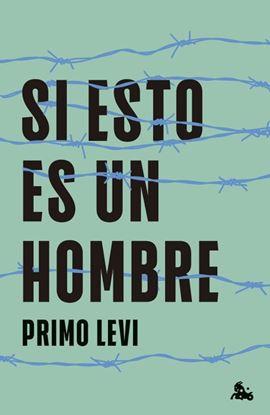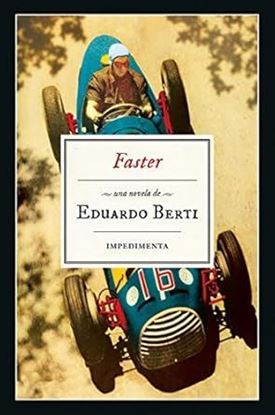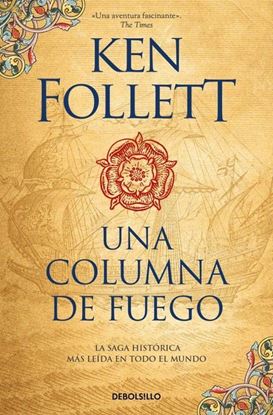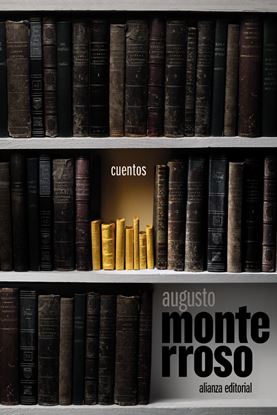

SI ESTO ES UN HOMBRE (TD) (BOL)
Publicada en 1947, Si esto es un hombre surgió en la imaginación de su autor durante los días de horror en Auschwitz. Los campos de concentración y exterminio, más que resguardados por las alambradas y los guardias, lo estuvieron por su propia monstruosidad, que los hacía inconcebibles. Es la sobriedad del testimonio de Primo Levi, una víctima que no grita pero que arranca el grito de la garganta de su lector, lo que devuelve al horror su realidad y lo hace inteligible como una siniestra señal de peligro.
995
746
FASTER
Buenos Aires, finales de los años setenta. Dos adolescentes apasionados por los Beatles viajan a las afueras de la ciudad, rumbo a un concesionario de la Mercedes, en busca del gran mito de la Fórmula 1: Juan Manuel Fangio, el Chueco. Ese día cambiará por siempre sus vidas. Desenfadada crónica personal, genial autobiografía fragmentaria, Faster es un compendio de brevísimos episodios en los que Fangio y los Beatles (George Harrison, sobre todo) cumplen el rol de detonadores y el «recuerdo» se coloca en el centro de la diana. Siguiendo la estela de Perec, Eduardo Berti se entrega a un minucioso ejercicio de memoria que lo lleva a hablar sobre la velocidad de las carreras y de la vida (la velocidad a la que el mismísimo Harrison dedica su canción «Faster»), sobre la amistad y la idolatría, además de retratar con emoción y fineza aquel momento en el que elegimos un destino que no es exactamente el mismo que habían previsto o deseado nuestros padres. Con esa lentitud ideal que, según Fangio, equivale a la mejor velocidad, Eduardo Berti despliega una red de recuerdos, profundos y falsamente desordenados, para forjar un relato lleno de frescura y nostalgia sobre el paso de la niñez a la vida adulta.
995
746
UNA COLUMNA DE FUEGO (TIERRA 3) (BOL)
Una columna de fuego arranca cuando el joven Ned Willard regresa a su hogar en Kingsbridge por Navidad. Corre el año 1558, un año que trastocará la vida de Ned y que cambiará Europa para siempre.
Las antiguas piedras de la catedral de Kingsbridge contemplan una ciudad dividida por el odio religioso. Los principios elevados chocan con la amistad, la lealtad y el amor, y provocan derramamientos de sangre. Ned se encuentra de pronto en el bando contrario al de la muchacha con quien anhela casarse, Margery Fitzgerald.
Cuando Isabel I llega al trono, toda Europa se vuelve en contra de Inglaterra. La joven monarca, astuta y decidida, organiza el primer servicio secreto del país para estar avisada ante cualquier indicio de intrigas homicidas, levantamientos o planes de invasión.
En París, a la espera, se encuentra la seductora y obstinada María Estuardo, reina de los escoceses, en el seno de una familia francesa con una ambición descomunal. Proclamada legítima soberana de Inglaterra, María cuenta con sus propios partidarios, que conspiran para deshacerse de Isabel.
Entretanto, Ned Willard busca a Jean Langlais, un personaje escurridizo y enigmático, sin saber que tras ese nombre falso se esconde un compañero de clase de su infancia, alguien que lo conoce demasiado bien.
995
746
A PESAR DE TI (REGRETTING YOU) (PELI)
A Morgan y su hija de dieciséis años, Clara, nada les gustaría más que no parecerse. Morgan está decidida a evitar que su hija cometa los mismos errores que ella, pues al quedarse embarazada y casarse demasiado joven, tuvo que dejar en el aire sus propios sueños. Con personalidades muy distintas les resulta cada vez más difícil coexistir. La única persona que puede traer paz al hogar es Chris, marido, padre y el ancla de la familia. Pero esa paz se rompe cuando se ve envuelto en un trágico y extraño accidente con desgarradoras consecuencias para ellas.Mientras lucha por reconstruir todo lo que se derrumbó, Morgan encuentra consuelo en la última persona que esperaba y Clara se vuelve hacia el único chico que le han prohibido ver. Con cada nuevo secreto y malentendido madre e hija se separan cada vez más, así que lo último que imaginan es que para volver a enamorarse se necesitan la una a la otra.
995
746
MAS ALLA DE LAS RUINAS. VIAJE ESPIRITUAL
Recuperar por medio del viaje los fundamentos más hondos de nuestras humanas ruinas para evitar futuros terremotos, constituye el afán de este libro que viaja por la Antigüedad de Grecia y Roma desde el presente. A partir de las raíces de nuestra cultura se busca el reencuentro y que de ese tronco vuelva a brotar la flor, un nuevo renacimiento. El viajero interior y exterior pretende alcanzar la iluminación del espíritu a partir de los escombros, ruinas de nuestras civilizaciones, que también se reconstruyen. A veces pese a nosotros mismos.
995
746
CUENTOS (MONTERROSO)
Creador de una de las obras más decididamente originales de la literatura latinoamericana, precursor del microrrelato y autor galardonado con premios tan importantes como el Magda Donato (1970), el Villaurrutia (1975), el Juan Rulfo (1997) o el Príncipe de Asturias de las Letras (2000), Augusto Monterroso -nacido en Guatemala en 1922 y exiliado en México desde 1944 hasta su fallecimiento en 2003- es artífice de relatos, ensayos y fábulas que, basados en una enorme capacidad de observación, se plasman en una prosa de singular precisión afinada por la paradoja y un sutil humor. Los cuentos reunidos en este volumen -provenientes de "Obras completas (y otros cuentos)", "Movimiento perpetuo" y "La palabra mágica"- son una muestra significativa de la maestría de Monterroso en el relato breve, dominio en el que revela, bajo una engañosa simplicidad, una inagotable capacidad de fabulación unida a un consumado oficio de escritor.
995
746














